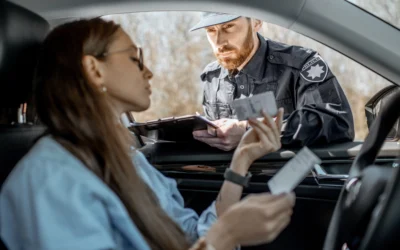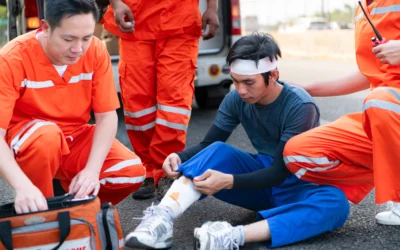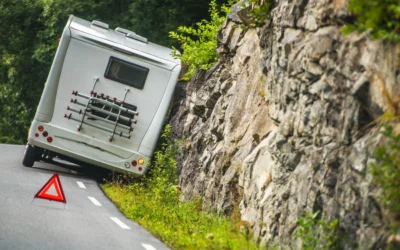The glittering lights of Las Vegas casinos and luxury hotels promise excitement, entertainment, and escape from the ordinary. But what happens when the very establishments designed to provide you with a memorable experience fail in their most basic obligation – keeping you safe? Every year, countless visitors to Nevada’s hotels and casinos suffer injuries that could have been prevented with proper security measures and reasonable care.
Whether you’re a tourist enjoying the Strip or a local resident frequenting neighborhood establishments, you have the right to expect a reasonable level of safety and security. When hotels and casinos fall short of this duty, the consequences can be severe, life-changing, and entirely preventable.
What Constitutes Hotel and Casino Security Negligence in Nevada?
Security negligence occurs when hotels and casinos fail to provide adequate protection for their guests and patrons. Under Nevada law, these establishments have a heightened duty of care because they invite people onto their premises for business purposes, making visitors “invitees” under premises liability law.
In Nevada, hotel, casino, and resort guests are considered “invitees” under Nevada premises liability law. This classification is significant because it establishes the highest level of legal protection for visitors.
Common Types of Security Negligence
Security failures at Nevada hotels and casinos can take many forms, each potentially exposing guests to serious harm:
- Inadequate Security Personnel: Too few guards, improperly trained staff, or inattentive security creates dangerous blind spots where incidents can occur unchecked.
- Poor Lighting and Surveillance: Dimly lit areas and broken cameras create opportunities for criminal activity and leave incidents without proper documentation.
- Failure to Address Known Dangers: Management awareness of recurring problems without taking corrective action represents serious negligence.
- Inadequate Background Checks: Failing to properly screen employees who have access to guest rooms and sensitive areas can lead to theft and assault.
- Delayed Emergency Response: Slow response times and inadequate emergency procedures can turn minor incidents into major tragedies.
How Does Nevada Law Apply to These Cases?
Nevada’s legal framework for hotel and casino security negligence claims is built on several key statutes and legal principles that work together to protect visitors’ rights.
Nevada Revised Statutes 41.130: The Foundation of Your Claim
The legal base for Nevada premises liability cases can be found in NRS 41.130, which states: “Whenever any person shall suffer personal injury by wrongful act, neglect or default of another, the person causing the injury is liable to the person injured for damages”
This statute establishes the fundamental principle that property owners and operators must answer for injuries caused by their negligence. You can find the complete text of this important law at NRS: Chapter 41 – Actions and Proceedings in Particular Cases Concerning Persons.
Special Duties Under Nevada Hotel Laws
Nevada Revised Statutes Chapter 651 specifically addresses public accommodations, including hotels and similar establishments. This chapter, outlines specific duties and liabilities that hotels must observe in their operations.
While this chapter primarily addresses eviction procedures and basic operational requirements, it works in conjunction with general premises liability law to establish comprehensive protection for hotel guests.
The Invitee Standard: Your Enhanced Protection
A landowner or possessor “must exercise ordinary care and prudence to render the premises reasonably safe for the visit” of a person invited on his premises for business purposes. This principle, established in Nevada case law, means that hotels and casinos must go beyond simply avoiding creating dangers – they must actively work to identify and eliminate potential hazards.
As a business invitee, you’re entitled to expect that the property owner has:
- Conducted reasonable inspections of the premises
- Identified potential hazards
- Either eliminated dangers or provided adequate warnings
- Maintained security measures appropriate for the type of establishment
- Responded appropriately to known risks
What Do You Need to Prove in a Security Negligence Case?
Successfully pursuing a hotel or casino security negligence claim in Nevada requires proving several key elements. Each component is essential, and your attorney will need to gather evidence supporting every aspect of your case.
Duty of Care
First, you must establish that the hotel or casino owed you a duty of care. This is typically straightforward for registered guests or paying customers, as business invitees receive the highest level of protection under Nevada law. However, the specific nature and extent of the duty can vary depending on the circumstances.
For example, a hotel’s duty to protect guests in their rooms differs from their duty to provide security in common areas like lobbies or parking lots. Similarly, casinos may have different obligations toward active gamblers versus individuals simply walking through their premises.
Breach of Duty
Next, you must demonstrate that the establishment breached their duty of care. For a hotel in Nevada to be held liable, the injured party must generally prove that the hotel knew or should have known about the hazardous condition and failed to take appropriate action to remedy it or warn guests adequately.
This element often requires extensive investigation into the establishment’s security policies, training procedures, incident reports, and past problems. Evidence might include:
- Security policies and procedures: What protocols were supposed to be followed?
- Training records: Were security staff properly trained?
- Incident reports: Had similar problems occurred before?
- Staffing levels: Was adequate security personnel on duty?
- Maintenance records: Were security systems functioning properly?
- Surveillance footage: What do the cameras show about the incident and the response?
Causation
You must prove that the security breach directly caused your injuries. This can be complex in security negligence cases because it requires showing not just that inadequate security existed, but that proper security would have prevented your specific injury.
For instance, if you were assaulted in a hotel parking lot, you would need to show that reasonable security measures – such as adequate lighting, security patrols, or surveillance cameras – would have deterred the attack or allowed for intervention before you were harmed.
Damages
Finally, you must demonstrate that you suffered actual damages as a result of the incident. This includes both economic damages (medical bills, lost wages, property damage) and non-economic damages (pain and suffering, emotional distress, loss of enjoyment of life).
In security negligence cases, damages can be particularly significant because victims often suffer not just physical injuries but also psychological trauma that can affect them long after their physical wounds have healed.
How Does Nevada’s Comparative Negligence Law Affect Your Case?
Nevada follows a modified comparative negligence system that can significantly impact your recovery in a security negligence case. In Nevada, if an injured party is more than 50% responsible for their accident, they are barred from recovering damages.
Understanding the 50% Rule
This means that if a jury determines you bear more than half the responsibility for your injuries, you cannot recover any compensation. However, if your fault is 50% or less, your damages will be reduced by your percentage of fault.
For example, if a victim is awarded $10,000 but is found 20% at fault for their injury, their compensation is reduced by 20%, meaning they receive $8,000 instead.
Common Comparative Negligence Arguments in Security Cases
Hotels and casinos often attempt to shift blame to injured parties by arguing that the victim contributed to their own harm. Common arguments include:
- Intoxication: Claiming that alcohol consumption impaired the victim’s judgment or ability to avoid danger. While intoxication doesn’t automatically bar recovery, it can affect the percentage of fault assigned.
- Ignoring Warnings: Arguing that the victim disregarded posted signs, barriers, or verbal warnings about potential dangers.
- Venturing into Restricted Areas: Contending that the victim went into areas where they weren’t supposed to be, such as employee-only sections or obviously dangerous locations.
- Failing to Exercise Reasonable Care: Suggesting that the victim didn’t pay attention to their surroundings or take reasonable precautions for their own safety.
Protecting Your Rights Against Comparative Negligence Claims
To minimize the impact of comparative negligence arguments, it’s crucial to:
- Document the scene thoroughly if possible
- Obtain witness statements
- Preserve evidence of the security failure
- Avoid making statements that could be construed as accepting fault
- Work with an attorney who can effectively counter these arguments
What Types of Damages Can You Recover?
Nevada law allows injured parties to recover both economic and non-economic damages in hotel and casino security negligence cases. The specific types and amounts of damages available depend on the severity of your injuries and their impact on your life.
Economic Damages
These are the concrete financial losses you’ve suffered as a result of the incident:
- Medical Expenses: Emergency care, ongoing treatment, medications, therapy, and future medical needs
- Lost Wages: Income lost during recovery, including overtime and bonuses
- Future Earning Capacity: Compensation for permanent work limitations
- Property Damage: Replacement or repair costs for damaged belongings
Non-Economic Damages
These damages compensate for the intangible ways your life has been affected:
- Pain and Suffering: Physical pain and ongoing discomfort
- Emotional Distress: Anxiety, depression, PTSD, and other psychological trauma
- Loss of Enjoyment of Life: Inability to participate in previously enjoyed activities
- Disfigurement: Permanent changes to physical appearance
Punitive damages may be available in cases involving particularly egregious conduct.
Punitive Damages
In cases involving particularly egregious conduct, Nevada courts may award punitive damages designed to punish the defendant and deter similar behavior. These are relatively rare but can be significant when they apply.
How Long Do You Have to File a Claim in Nevada?
Time is of the essence in hotel and casino security negligence cases. In Nevada, premises liability claims must be filed within two years from the date of the injury (NRS 11.190).
The Two-Year Statute of Limitations
In Nevada, you generally have two years from the date of the injury to file a hotel or casino negligence claim under NRS 11.190. In some cases where injuries are not immediately obvious, the discovery rule may extend this timeline, but it is applied narrowly. Acting quickly is essential to preserve your legal rights.
Why You Shouldn’t Wait
While two years might seem like a long time, building a strong security negligence case requires extensive investigation and preparation. Evidence can disappear, witnesses’ memories can fade, and surveillance footage may be deleted or recorded over. Starting your case early gives your legal team the best opportunity to gather compelling evidence and build a strong case.
Additionally, some evidence is particularly time-sensitive:
- Surveillance footage is often automatically deleted after 30-90 days
- Witnesses may become harder to locate over time
- Physical evidence at the scene may be altered or removed
- Employee records and training documentation may be updated or destroyed
What Should You Do Immediately After a Security-Related Incident?
Your actions in the hours and days following a security negligence incident can significantly impact your ability to recover compensation. While your first priority should always be your safety and medical care, there are important steps you can take to protect your legal rights.
Immediate Safety and Medical Care
Your health and safety are paramount. If you’ve been injured, seek medical attention immediately, even if your injuries seem minor. Some injuries, particularly those involving head trauma or internal damage, may not be immediately apparent but can be serious or even life-threatening.
Don’t refuse medical treatment at the scene if it’s offered, and don’t hesitate to call 911 if you need emergency medical care. Having official medical documentation of your injuries from the outset strengthens your case significantly.
Document Everything
If you’re able to do so safely, begin documenting the incident immediately:
- Take photographs of the scene, including any security failures, poor lighting, broken equipment, or other hazardous conditions. Also photograph your injuries, damaged clothing, and any property that was affected.
- Get witness information from anyone who saw the incident or can speak to the security conditions at the establishment. This includes other guests, employees, and bystanders.
- Make notes about what happened while the details are fresh in your memory. Include the time, date, weather conditions, and anything unusual you noticed about security or safety measures.
- Keep all documentation related to the incident, including medical records, police reports, and any correspondence with the hotel or casino.
Report the Incident Properly
Make sure the incident is officially reported to both the establishment and, if appropriate, law enforcement. When reporting to hotel or casino management:
- Ask for a copy of the incident report
- Don’t sign anything without having an attorney review it first
- Avoid making statements about fault or accepting responsibility
- Be factual but don’t speculate about what could have been done differently
Preserve Evidence
Ask the establishment to preserve any surveillance footage that might have captured the incident or the conditions that led to it. Make this request in writing and send it to multiple managers to ensure it’s received and acted upon.
How Do Hotels and Casinos Try to Avoid Responsibility?
Understanding the common tactics used by hotels and casinos to avoid liability can help you prepare for the challenges ahead in your case. These establishments typically have experienced legal teams and insurance companies working to minimize their exposure.
Quick Settlement Offers
One of the first tactics you might encounter is an offer to settle your claim quickly for a relatively small amount. These offers often come before you’ve had time to fully assess your injuries or consult with an attorney. While the offer might seem generous initially, it’s almost always far less than what your case is actually worth.
Hotels and casinos know that early settlement offers can be tempting, especially when you’re facing mounting medical bills and lost wages. However, accepting such an offer typically means giving up your right to seek additional compensation, even if your injuries turn out to be more serious than initially thought.
Shifting Blame to Victims
As mentioned earlier, these establishments frequently attempt to use Nevada’s comparative negligence law to their advantage by arguing that you contributed to your own injury. They might claim you were intoxicated, not paying attention, or acting recklessly.
Disputing the Extent of Security Duties
Hotels and casinos may argue that they had no duty to protect you from the specific type of harm you suffered. For example, they might claim that criminal acts by third parties are unforeseeable and that they shouldn’t be held responsible for the independent criminal conduct of others.
Questioning Causation
Even when security failures are obvious, establishments may argue that proper security wouldn’t have prevented your specific injury. This argument requires careful analysis of the security measures that should have been in place and expert testimony about how those measures would have changed the outcome.
Challenging Damages
Finally, hotels and casinos often dispute the extent and nature of your damages. They may argue that your injuries weren’t as severe as claimed, that your medical treatment was unnecessary or excessive, or that other factors contributed to your damages.
Why Working with an Attorney Makes a Difference
Hotel and casino security negligence cases are complex matters that require extensive legal knowledge, investigative resources, and experience with the tactics used by large hospitality companies and their insurance carriers.
Thorough Investigation
A qualified attorney will conduct a comprehensive investigation into your case, including:
- Obtaining and analyzing surveillance footage before it’s deleted
- Interviewing witnesses while their memories are fresh
- Reviewing security policies, training records, and incident reports
- Consulting with security and safety professionals to identify failures
- Examining the establishment’s history of similar incidents
Professional Networks
Experienced attorneys have relationships with medical professionals, accident reconstruction specialists, security consultants, and other professionals who can provide crucial testimony in your case.
Negotiation Skills
Most premises liability cases settle out of court, but achieving a fair settlement requires skilled negotiation with insurance companies and corporate legal teams who are experienced in minimizing payouts.
Trial Experience
When settlement negotiations fail, you need an attorney who is prepared and able to take your case to trial. The willingness and ability to go to court often influences the settlement negotiations significantly.
Key Takeaways
- Nevada hotels and casinos owe guests a duty of reasonable care as business invitees, requiring them to maintain reasonable security measures and address known dangers
- Security negligence can include inadequate personnel, poor lighting, failure to address known problems, inadequate background checks, and delayed emergency response
- Your claim is governed by NRS 41.130 and must be filed within two years of your injury under NRS 11.190
- You must prove duty, breach, causation, and damages to succeed in your case
- Nevada’s comparative negligence law can reduce your recovery if you’re found partially at fault, and bars recovery if you’re more than 50% responsible
- You can recover both economic damages (medical bills, lost wages) and non-economic damages (pain and suffering, emotional distress)
- Taking immediate action to document the incident, seek medical care, and preserve evidence is crucial to protecting your rights
- Hotels and casinos often use various tactics to avoid responsibility, including quick settlement offers and attempts to shift blame
- Working with an experienced attorney significantly improves your chances of obtaining fair compensation
Frequently Asked Questions
Can I sue a hotel or casino if I was injured by another guest’s criminal behavior?
Yes, you may have a valid claim if the establishment failed to provide reasonable security that could have prevented the incident. Hotels and casinos can be held liable for foreseeable criminal acts when they don’t take appropriate security measures.
What if I was drinking alcohol when the incident occurred?
Alcohol consumption doesn’t automatically bar you from recovery, but it may affect the percentage of fault assigned to you under Nevada’s comparative negligence law. As long as you’re not found more than 50% at fault, you can still recover damages.
How much is my hotel or casino security negligence case worth?
The value depends on many factors, including the severity of your injuries, the extent of security failures, your medical expenses, lost wages, and the impact on your life. Each case is unique and requires individual evaluation.
What if the hotel or casino claims they had adequate security?
Your attorney will investigate the actual security measures in place and compare them to industry standards and what a reasonable property owner would provide. Security consultants may be needed to evaluate whether the measures were truly adequate.
Can I still file a claim if the incident happened months ago?
As long as it’s been less than two years since your injury, you can still file a claim. However, it’s important to act quickly because evidence can disappear and witness memories can fade over time.
What if I don’t have witnesses to the incident?
While witnesses can strengthen your case, they’re not always necessary. Surveillance footage, your medical records, the establishment’s incident reports, and other physical evidence can also support your claim.
Do I have to pay attorney fees upfront?
Most personal injury attorneys work on a contingency fee basis, meaning you don’t pay attorney fees unless they recover compensation for you. This allows you to pursue your case without upfront costs.
What if the hotel or casino offers to pay my medical bills?
Be cautious about accepting payments that might be tied to releasing your right to pursue further compensation. Consult with an attorney before accepting any payments or signing any documents.
Take Action to Protect Your Rights
If you’ve been injured due to inadequate security at a Nevada hotel or casino, you don’t have to face the aftermath alone. These establishments have sophisticated legal teams working to protect their interests – you deserve the same level of advocacy for yours.
Don’t let insurance companies or corporate legal departments convince you that you don’t have a valid claim or that you should accept less than you deserve. Your safety mattered when you walked through their doors, and your rights matter now.
The path to fair compensation begins with a single step: reaching out for help. At Joey Gilbert Law, we have the experience, resources, and determination needed to hold negligent hotels and casinos accountable for their failures. We work on a contingency fee basis, which means you pay nothing unless we win your case.
Your case is unique, and it deserves individual attention from attorneys who understand both Nevada law and the specific challenges of security negligence claims. Contact us today for a free consultation to discuss your situation and learn about your options. The sooner you act, the better we can protect your rights and build the strongest possible case for the compensation you deserve.
Time is working against you – surveillance footage gets deleted, witnesses become harder to find, and the two-year statute of limitations is always approaching. But with the right legal team on your side, you can focus on your recovery while we focus on getting you justice.




